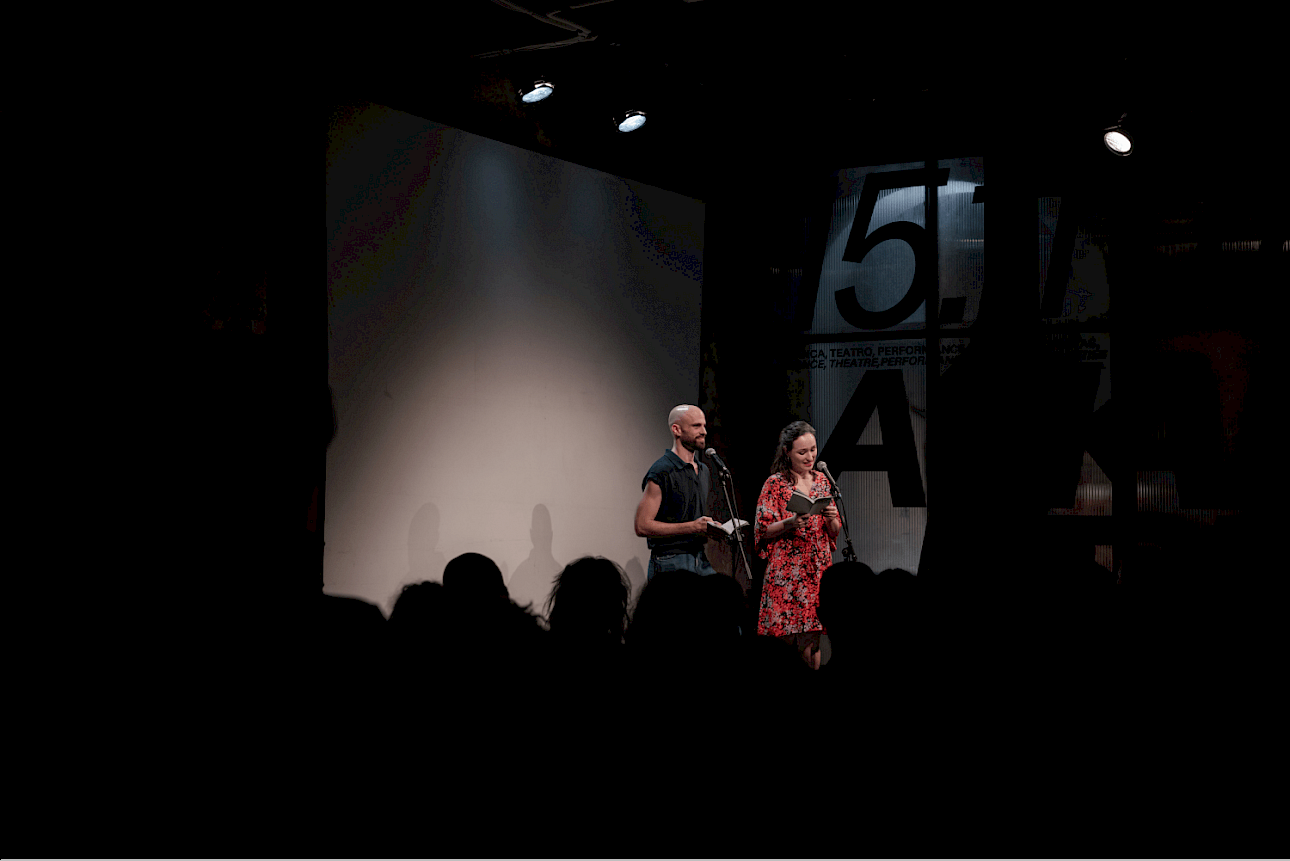Terra Batida
Fire Letters
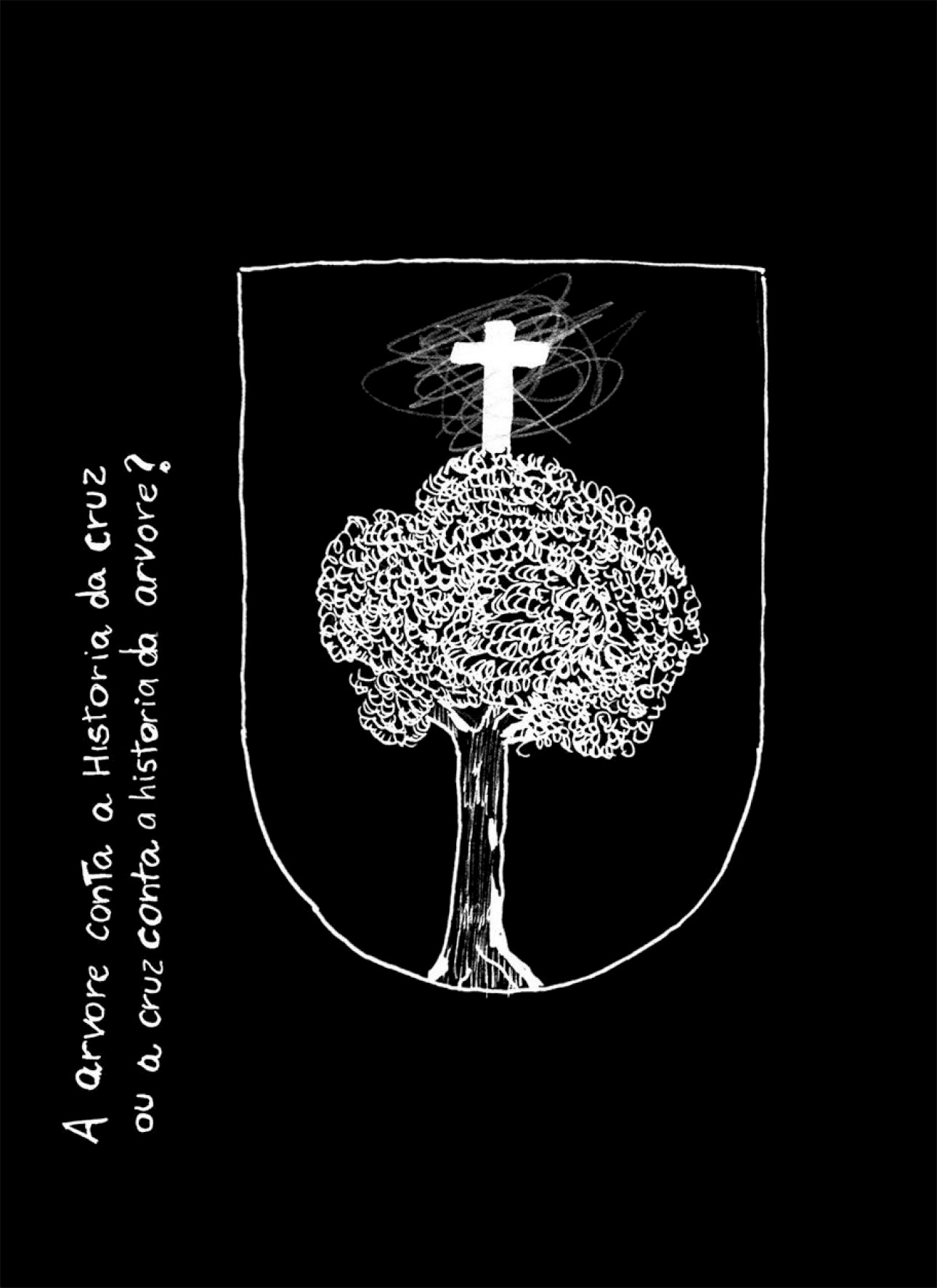
- 29.11 — 30.11 2024
- Casa da América Latina
Conversations between Portugal and Brazil, where fire is the conductor of reflections and transmutation of memories of documents, history, museums, forests, and bodies.
Terra Batida is a platform for collective production dedicated to the intersections between performing arts and ecology, under the artistic direction of Ritó Natálio. Founded in 2020, the project has since permeated different regions from the north to the south of Portugal (Ourique, Castro Verde, Montemor-o- Novo, Aveiro, Ílhavo, Gafanha da Nazaré, Fundão, and Lisbon), involving and supporting more than 55 artists, scientists, activists and associations, with a view to weaving together multidisciplinary and multi-vocal strands regarding ecological violence and artistic processes.
In 2024, Terra Batida enters into dialogue with contemporary Indigenous thought.
Fire Letters, a reading-performance by Ellen Pirá Wassu, an Indigenous poet of the Wassu Cocal people, and Ritó Natálio, a writer and performer, is based on the artists’ curatorial and poetic research around museum archives containing objects that link the two territories. Their letters address the themes of environmental racism, the representation of Indigenous knowledge, decolonial ecology, and the decolonisation of museums. These studies and processes involved collaborations with a range of researchers, among them the Indigenous researchers Francisco and Francy Baniwa and Idjahure Terena, who highlighted important perspectives on the restoration of the objects and the role of museums.
These themes also resonate in the work of the Indigenous Amazonian trans artist Uýra Sodoma, invited to share this programme. Their intervention, The interest in the Amazon is not the damn trees enters into dialogue with Ellen Pirá Wassu and Ritó Natálio, recalling ancestral memories and knowledge from the forest that, in turn, call for adaptation, dissidence, destruction and regeneration. In a conversation that interweaves landscapes and territories, fire is the principal element of transmutation. From the territory of the forest to that of memory.
— Ritó Natálio & Ellen Pirá Wassu
PROGRAMME
29 NOV
Double bill
19H00 — Casa da América Latina
Fire Letters(Ellen Pirá Wassu e Ritó Natálio)
Performance
+
The interest in the Amazon is not the damn trees (Uýra Sodoma)
Performance
30 NOV
Double bill
17H00 — Casa da América Latina
Fire Letters(Ellen Pirá Wassu e Ritó Natálio)
Performance
+
The interest in the Amazon is not the damn trees (Uýra Sodoma)
Performance
Credits
Performances by Ellen Pirá Wassu & Ritó Natálio, Uýra Sodoma Produced by Terra Batida/ Associação Parasita (Laila Algaves Nuñez, Sofia Lopes, Lysandra Domingues) Coproduced by Associação Parasita, Alkantara
This performance is copresented with Teatro Nacional D. Maria II.
PARASITA is supported by República Portuguesa – Ministério da Cultura/ Direcção-Geral das Artes in 2023 – 2024.
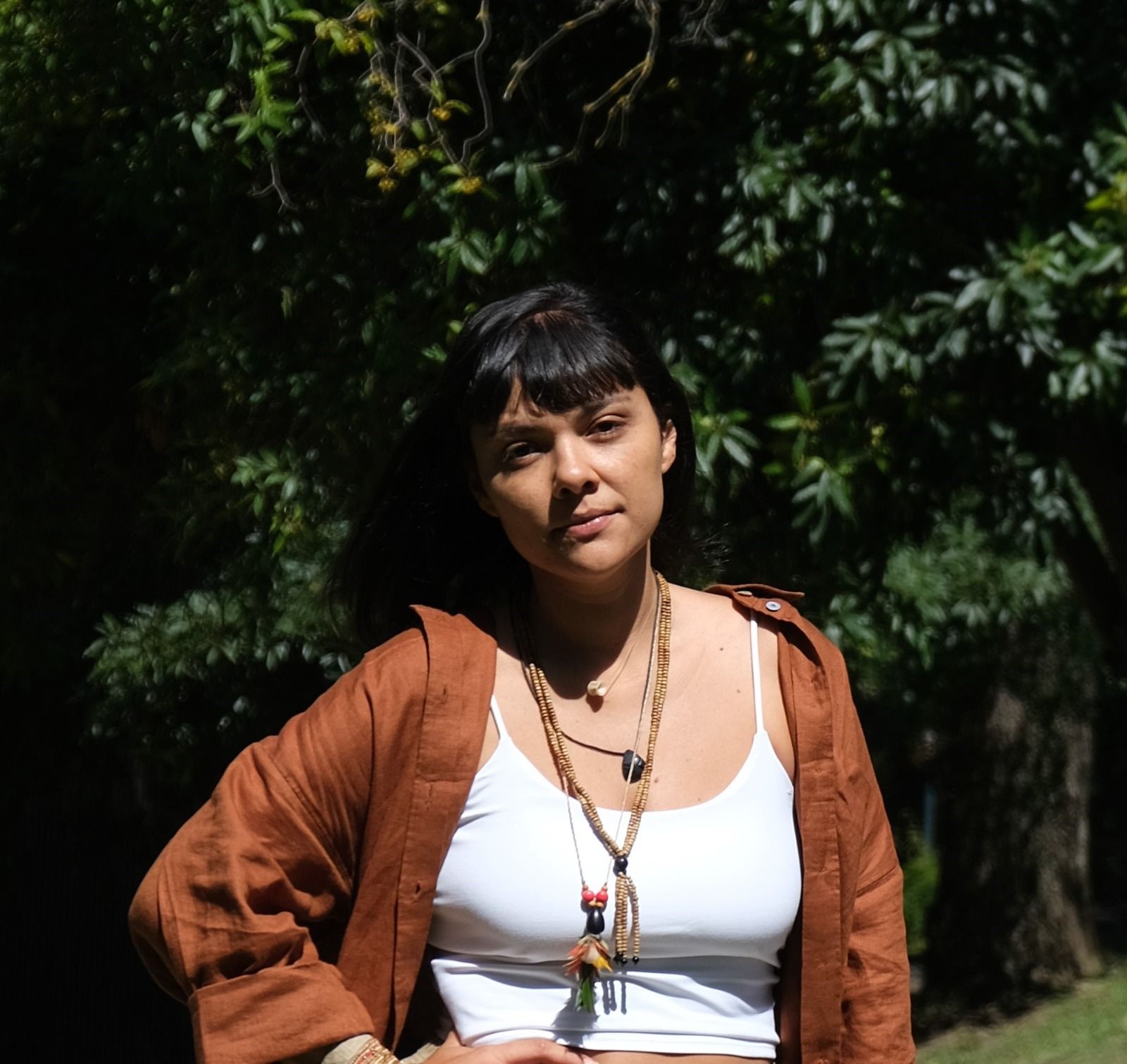
Ellen Pirá Wassu is animal, river, tree, root and seed. She is also a human being and writer, with a doctorate in Comparative Modernities: Literatures, Arts and Cultures, from the Centro de Estudos Humanísticos at Universidade do Minho (CEHUM). She researches the relations between expropriations of territory and identity in dominant visual and literary discourse, a study that she has termed “the poetics of expropriation”. In 2021, she published ixé ygara voltando pra y’kûá (Urutau) and in 2023, yby kûatiara um livro de terra (Urutau). Her writing has...
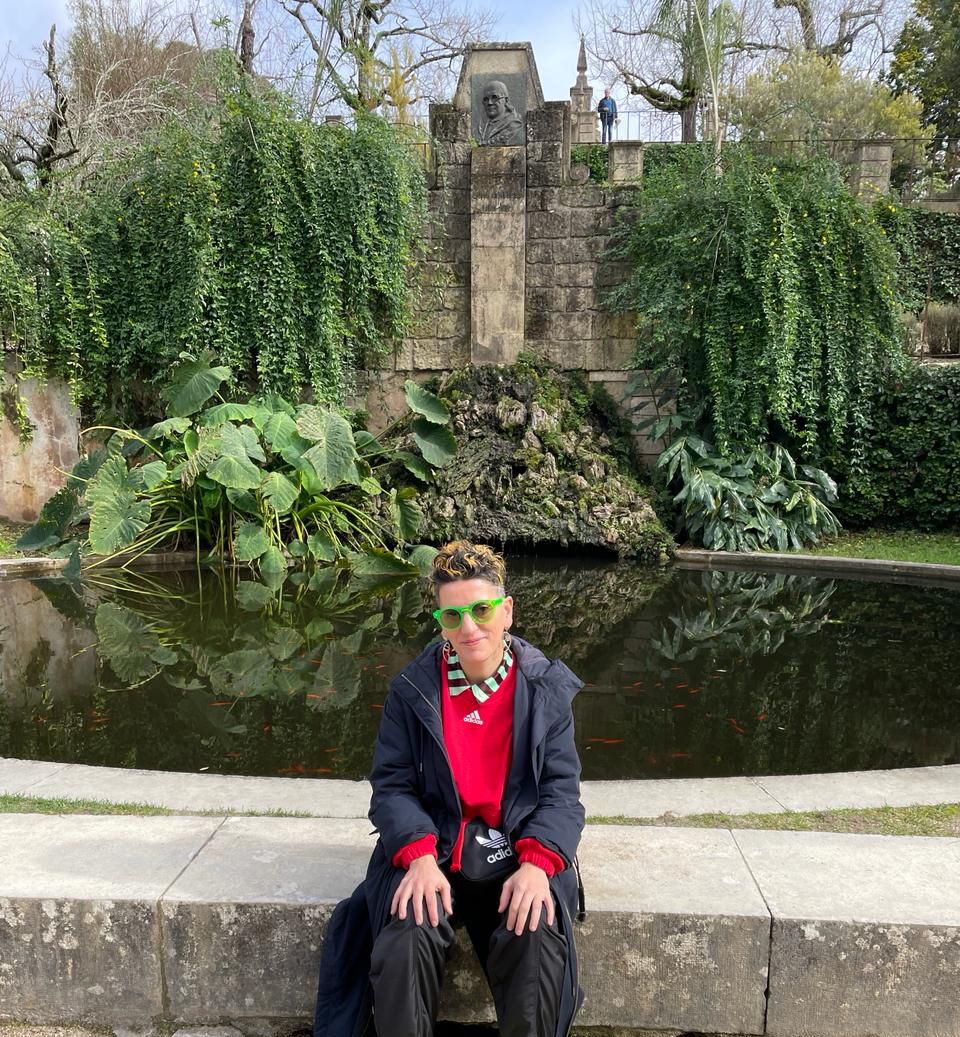
Artist and researcher. His practice spans essayistic writing and performance, encompassing creation, teaching, research, and the curation of public programmes. He has organised a series of lecture-performances exploring the relationship between language and geology, presented internationally across art spaces, theatres, and academic contexts: Antropocenas (2017) with João dos Santos Martins, Geofagia (2018), and Fóssil (2020). One of his most recent works — Spillovers (2023) — proposes a fabulated, collective reinterpretation of Lesbian Peoples: Material for a...
Related articles:
- 29.11 - 30.11.2024
- Performances
- Earthways
Ellen Pirá Wassu & Ritó Natálio
Fire Letters
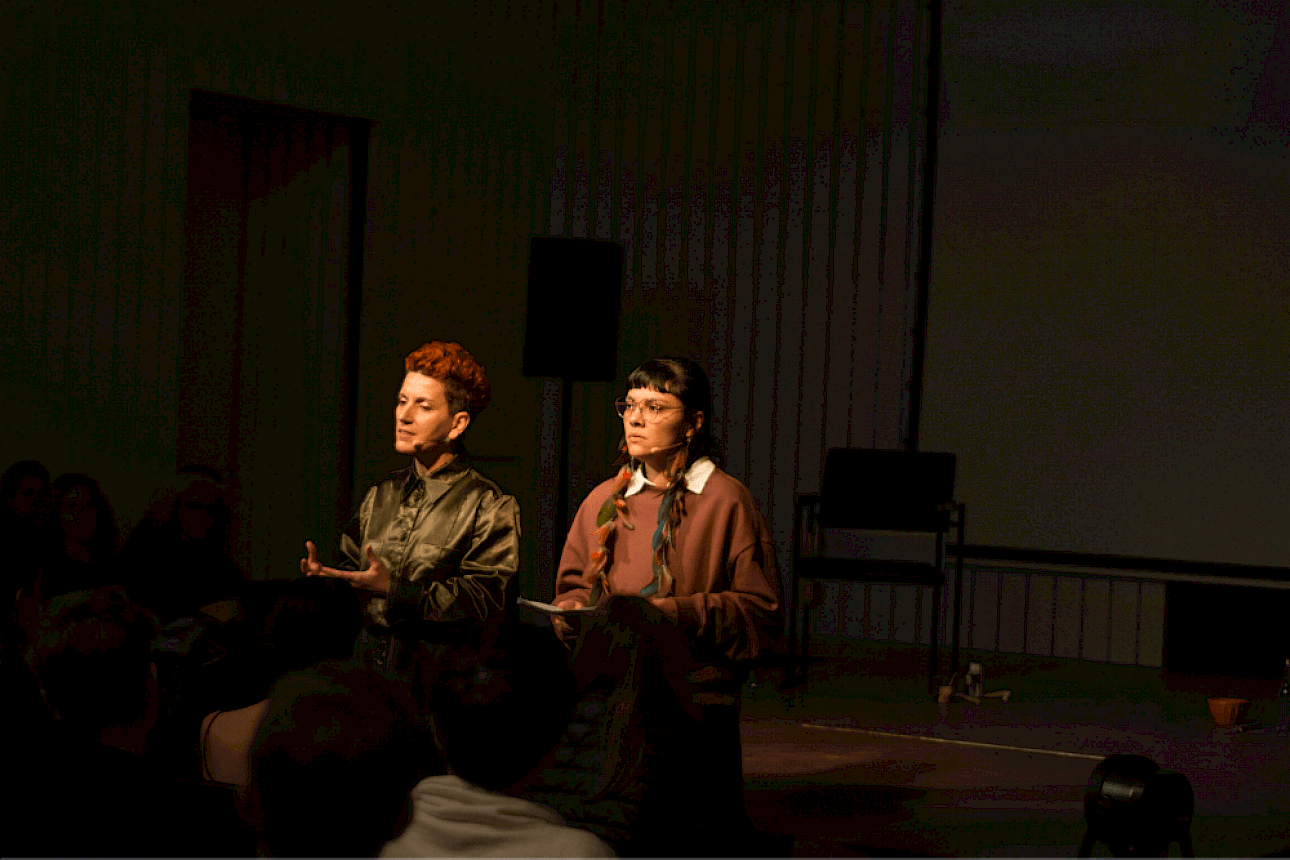
- FRI 29.11.2024 7:00 PM
- SAT 30.11.2024 5:00 PM
- Performances
- Earthways
- 29.11 - 30.11.2024
- Performances
- Earthways
Uýra Sodoma
The interest in the Amazon is not the damn trees
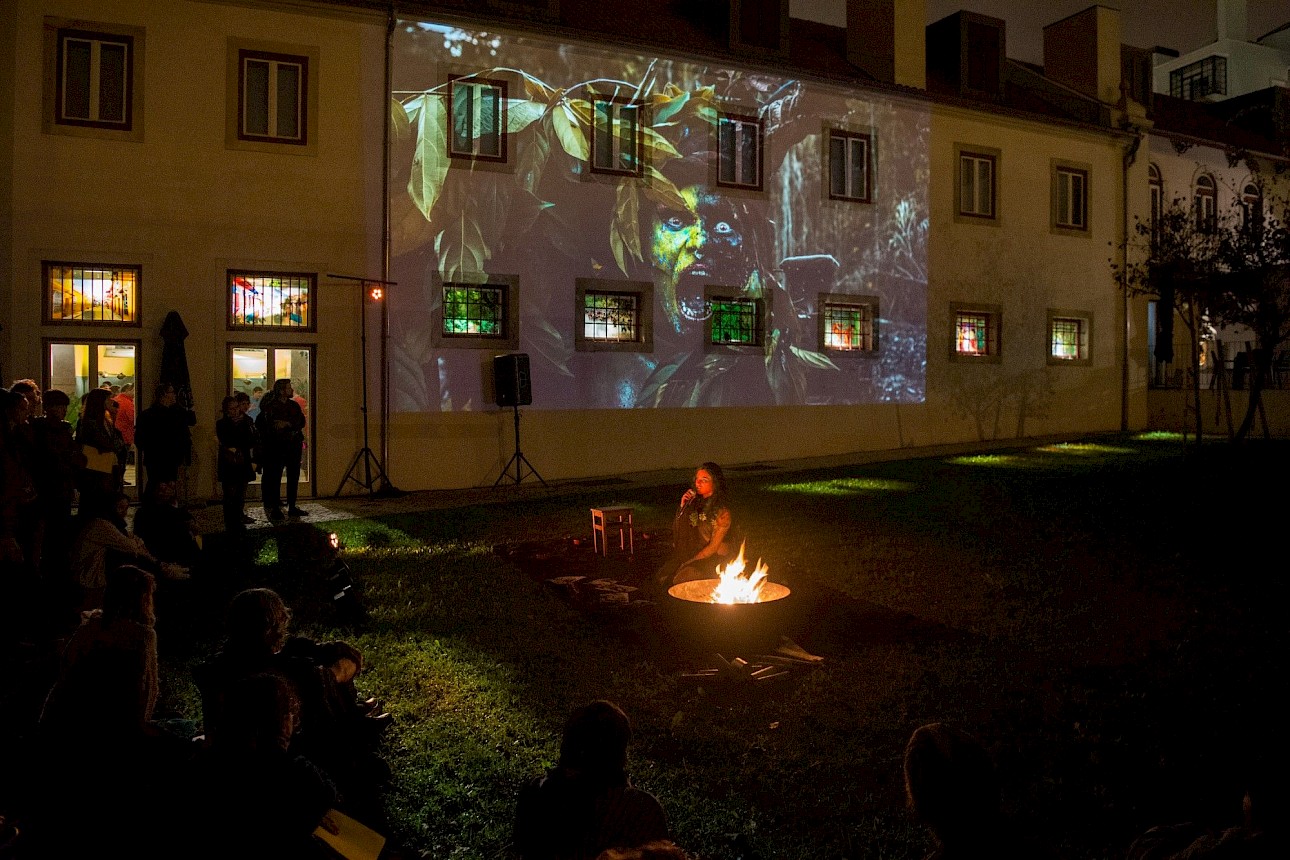
- FRI 29.11.2024 7:00 PM
- SAT 30.11.2024 5:00 PM
- Performances
- Earthways
